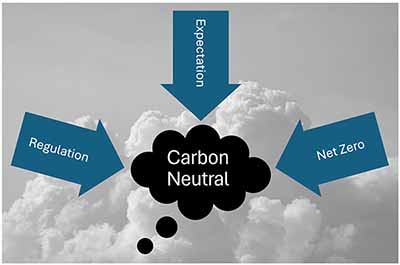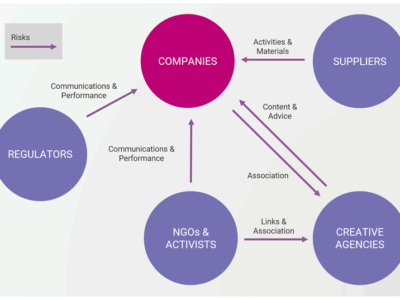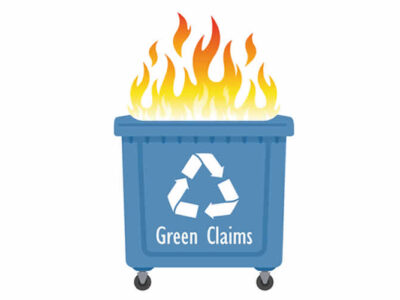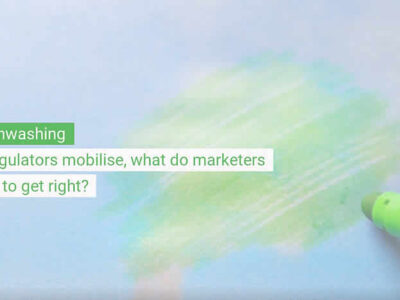Understanding environmental claims can be complicated and navigating the rules often causes confusion or uncertainty.
This page provides updates on notable developments, regulatory action and commentary on what you need to know to reduce your communication risks and concentrate on the right messages in the right way.

Fashion Industry Greenwashing Review – CMA Secures Pledges | March 2024
The UK’s CMA (Competition and Markets Authority) has issued an update (27/03/2024) on their 20-month probe into ‘green’ claims in the fashion industry.
The investigation had previously named ASOS, Boohoo and George (Asda) and the update reveals that these companies have signed formal agreements to ‘use only accurate and clear green claims’.

The CMA indicates that these undertakings require commitments in several areas to change the way that they describe, display and promote green claims, including:
- Claims – all claims must be clear, accurate and not misleading
- ‘Green ranges’ – must be clearer. The criteria for inclusion must be clearly described and include descriptions of the minimum requirements. Products should only be included in environmental ranges when they meet all the relevant criteria.
- Imagery – the use of natural imagery must not be used to suggest better environmental performance than can be demonstrated.
- Fabrics and content – these must be clear and explicit, so should include ‘recycled’ or ‘organic’ rather than ‘eco’, ‘responsible’, or ‘sustainable’ and should clearly display the percentage of ‘recycled’ or ‘organic’ fibres.
- Use of filters – if a customer searches for specific criteria like ‘recycled’ then only products made from ‘predominantly recycled materials should be shown.’
- Environmental targets – these should provide details and ‘must be supported by a clear and verifiable strategy, and customers must be able to access more details about it’.
- Accreditation schemes – statements about accreditation schemes and standards must make it clear whether an accreditation applies to specific products or to the company’s wider performance.
TAKEAWAYS
What can we learn from these developments?
- Considering the implications of this, if it were a school report it would be firmly in the category of ‘Could do better’. The regulator has spelt out specific conditions and requirements that the companies must meet – and by implication, these are needed because they have not so far been meeting them.
- The 3 companies must provide the CMA with regular reports to demonstrate compliance with these commitments and how they are improving their internal processes.
- There is a wider warning – the CMA has issued an open letter to the industry, asking fashion retail businesses to review their claims and improve their practices.
Turning up the heat on the advertising industry | February 2024
Like other sectors, the advertising industry is facing increasing scrutiny over its environmental impact. But perhaps uniquely, the impacts are one step removed and are based upon involvement in and promotion of environmentally damaging sectors.

The increased attention has been substantially led by activists within the creative industries themselves, through initiatives like Clean Creatives, which has sought to raise awareness about advertising agency clients and their activities. It also encourages organisations and creatives working in the sector to refuse any future contracts with fossil fuel companies, trade associations, or front groups.
A recent report from Planet Tracker further turns up the heat on major advertisers by investigating their ownership and raising some key questions for investors about the companies they support.
The report, ‘From ADversity to ADvantage’, focuses the attention of investors and lenders in the financial sector towards the six global Holding Companies which own the bulk of major advertising agencies.
Planet Tracker notes that the top 10 investors own on average 43% of the five listed advertising holding companies and believes that these investors are complicit in allowing environmental damage if they do not press holding companies to refuse to work for clients with high environmental footprints.
In addition, the report finds that executive compensation in advertising holding companies is heavily tied to financial performance, with little or no link to client profiles or their impacts.
A common mantra of advertising agencies is that their relationships with high-impact firms can allow them to have a positive influencing role, working on the principle that it is better to be inside the tent….
But just how likely is it that advertisers, frequently engaged in specific areas of focus, are capable of influencing the strategic decisions and therefore ongoing environmental footprints of the companies they work for?
It seems unlikely that an international oil major would accept strategic advice on direction and business models from an advertising agency. Apart from anything else they don’t have the relevant expertise.
Planet Tracker’s report highlights several areas where it believes that the advertising industry’s continuing support for high-impact sectors presents not only association risk (see our overview of association risk) but also risks to revenue, staff retention, capital performance and intangible value – each of them relating to bottom line impacts that should be of fundamental concern to investors and lenders.
TAKEAWAYS
What can we learn from these developments?
From ADversity to ADvantage raises some important questions that agencies should consider:
- Do you need to have increased clarity, consistency and ready justifications for who you choose to work for?
- Will you be able to answer investor questions about your decisions and the performance of your high-impact clients?
- What share of the impacts of your clients should be assigned to you?
- Should advertising agencies be more able to demonstrate meaningful positive change through their engagements?
CMA Investigation – Unilver in the spotlight | December 2023
On the 12th December 2023, the UK’s CMA (Competition and Markets Authority) announced a formal investigation into Unilever. It will look at claims for cleaning products and toiletries after an initial investigation raised concerns.
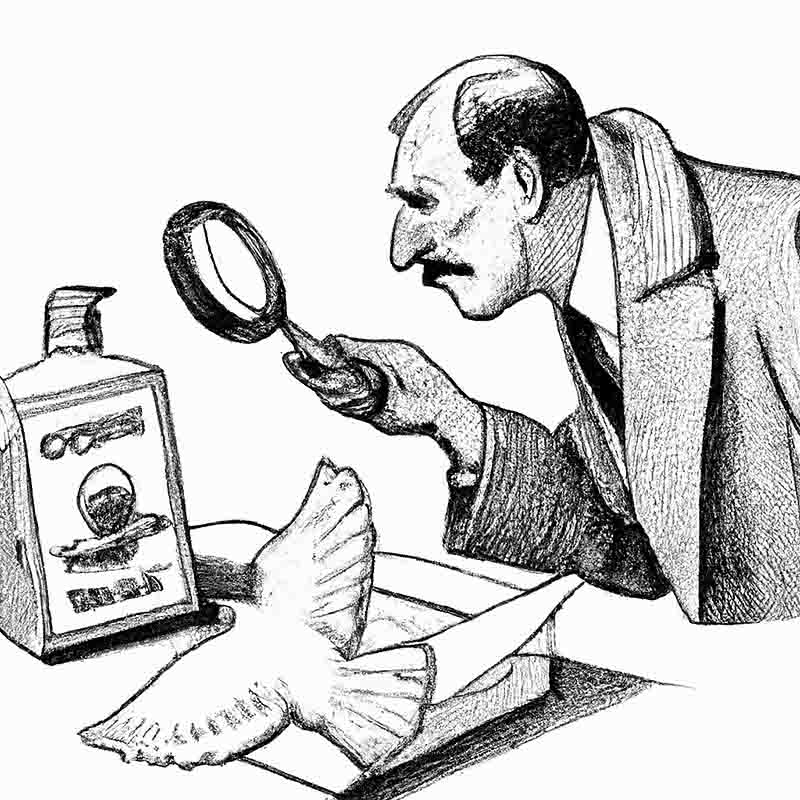
This appears to be the first investigation stemming from a wider review launched in January 2023 when the CMA announced a greenwashing probe into the FMCG (Fast Moving Consumer Goods) sector. This was to consider if companies, large or small, were promoting products including food, drink, cleaning products and toiletries using environmental claims which were misleading consumers.
The CMA is concerned that “Unilever may be overstating how green certain products are through the use of vague and broad claims, unclear statements around recyclability, and ‘natural’ looking images and logos”.
The practice under investigation includes:
- Use of vague and broad statements that might mislead consumers about environmental impacts.
- Possible exaggerations of how ‘natural’ a product may be.
- Focus on single aspects of a product that might mislead about total environmental performance.
- Unclear claims on recyclability.
- Use of colours and imagery that may contribute to the impression that products are “more environmentally friendly than they actually are.”
CMA’s CEO Sarah Cardell said, “We’ll be drilling down into Unilever’s claims to see if they measure up”.
Reuters reported that shares in Unilever opened 0.7% down on the day of the announcement – although they rose again the next day.
The CMA is at an initial stage of its investigation and Unilever may not have broken any laws. The CMA will use its powers to gather more evidence and depending upon its findings may secure undertakings to change practices, take legal action or close the case with no further action.
TAKEAWAYS
What can we learn from these developments?
- 10 months after announcing a review, the CMA is now pursuing a formal investigation.
- The stated intent of regulators to clamp down on communications that mislead customers is being backed up by action.
- The potential non-compliances reflect common greenwashing issues.
Airlines – banned again | December 2023
On the 6th of December 2023 airlines hit the sustainability headlines again – and for the wrong reasons.
The UK’s ASA (Advertising Standards Agency) banned adverts from three leading airlines – what happened? – and what can we learn from these latest rulings?

Air France
Air France’s Google ad was seen in July 2023 and stated “Air France is committed to protecting the environment: travel better and sustainably”.
The ASA challenged “whether the ad gave a misleading impression of the advertiser’s environmental impact”.
In the ruling, the ASA stated that Air France-KLM did not provide a substantive response to their enquiries.
The CAP code considers that this was an ‘absolute’ claim – and therefore:
“expected to see a high level of evidence which demonstrated how Air France were protecting the environment and making aviation sustainable.”
The issue here – as with previous rulings for other airlines is that the regulator’s assessment is that the aviation industry produces high levels of CO2 and associated climate damage and also that there are no currently available/commercially viable technologies in the aviation industry that can back up an absolute claim.
Or put another way, you can’t make an absolute claim for an unsustainable industry.
Lufthansa
Another Google ad which went out in July 2023, stated “Book your ticket directly with Lufthansa and explore destinations around the world – Fly more sustainably”.
Similarly, to the previous Air France example, the ASA thought the ad provided a misleading impression of environmental impact.
Lufthansa responded to this challenge explaining that the claim related to their ‘Green Fares’ initiative which reduces flight emissions by 20% by using sustainable air fuels and then offsets the remaining 80% of emissions. They felt this was a comparative claim because the Green Fare option was different to other fare options they offered and also those of competitors.
They also highlighted the fact that the Google Ads platform (Google Callouts) only provides very limited space for copy and that therefore consumers, used to this fact, would not expect further substantiation of the claim.
The ASA’s assessment reiterates the core principle that environmental claims must be clear and that comparative claims can be justified – but only if the basis of the comparison is clear.
The ASA agreed that the use of SAF and offsetting could reduce some of the environmental impacts of flying but that the ‘fly more sustainably’ claim was not clear in the ad.
Interestingly, while they acknowledge the lack of space in the ad area, they do not see that as a valid reason for not providing material information ‘of such relevance’.
Etihad
Etihad’s ad (on Google July 2023) stated: “Etihad Airways – Book Your Flight Today – Enjoy Great Discounts, Offers and Deals On Your Flight Bookings. Explore the World With Confidence and Total Peace Of Mind With Etihad Airways. Environmental Advocacy. Award-Winning Service”.
Just like the other two airlines’ ads the ASA’s challenge was whether there was a misleading impression of the advertiser’s impact.
In their ruling, they stated that they considered ‘Total Peace of Mind’ together with ‘Environmental Advocacy’ as an absolute environmental claim. They re-stated the consideration that the aviation sector cannot currently “adequately substantiate absolute green claims”. They also stated that they had not seen any evidence that Etihad was engaged in Environmental Advocacy.
TAKEAWAYS
What are the main things we can learn from these latest rulings?
- These rulings reinforce previous ones (Lufthansa March 2023 and Etihad October 2022) that the aviation sector should not make absolute environmental claims.
- Despite this (and being caught out twice) airlines clearly see the value of advertising on environmental performance.
- Constraints on content that arise from the ad platform used cannot be used as a defence for not providing substantiation where this is considered important.
- The ASA is pursuing wider enforcement work on communications related to climate change and the environment.
- These rulings also confirmed the ASA’s use of an AI (artificial intelligence) based Active Ad Monitoring system which searches for possible infringements online – likely to increase their ability to detect infringements.


Can we help you?
We’ve worked with companies in the UK, Europe and
beyond to avoid greenwash by developing responsible communications approaches, content and copy. Ranging from strategic corporate reporting and disclosure to brand guidelines or in-store packs, we can help you develop content that’s clear, accurate and substantiated.
Book a chat with one of our partners to explore how we might help you – there’s no obligation!

